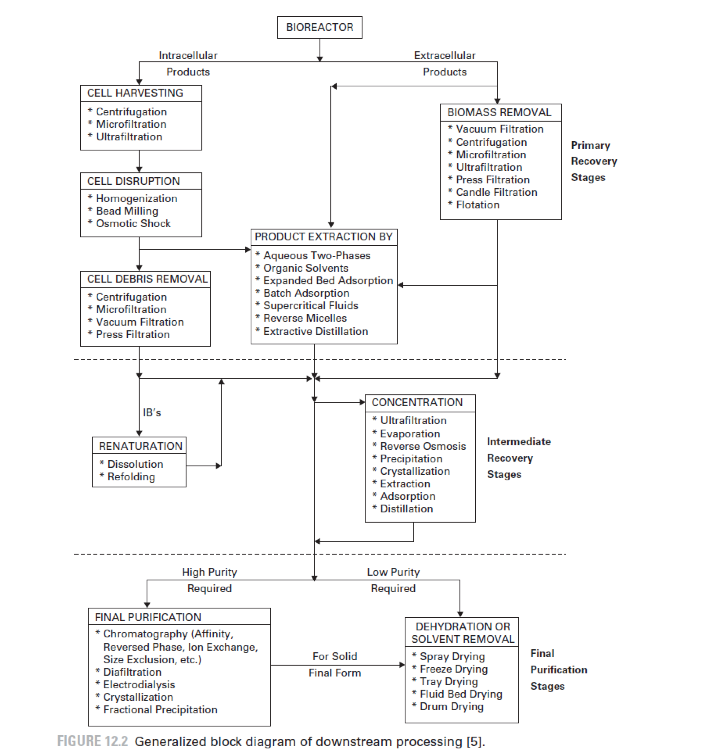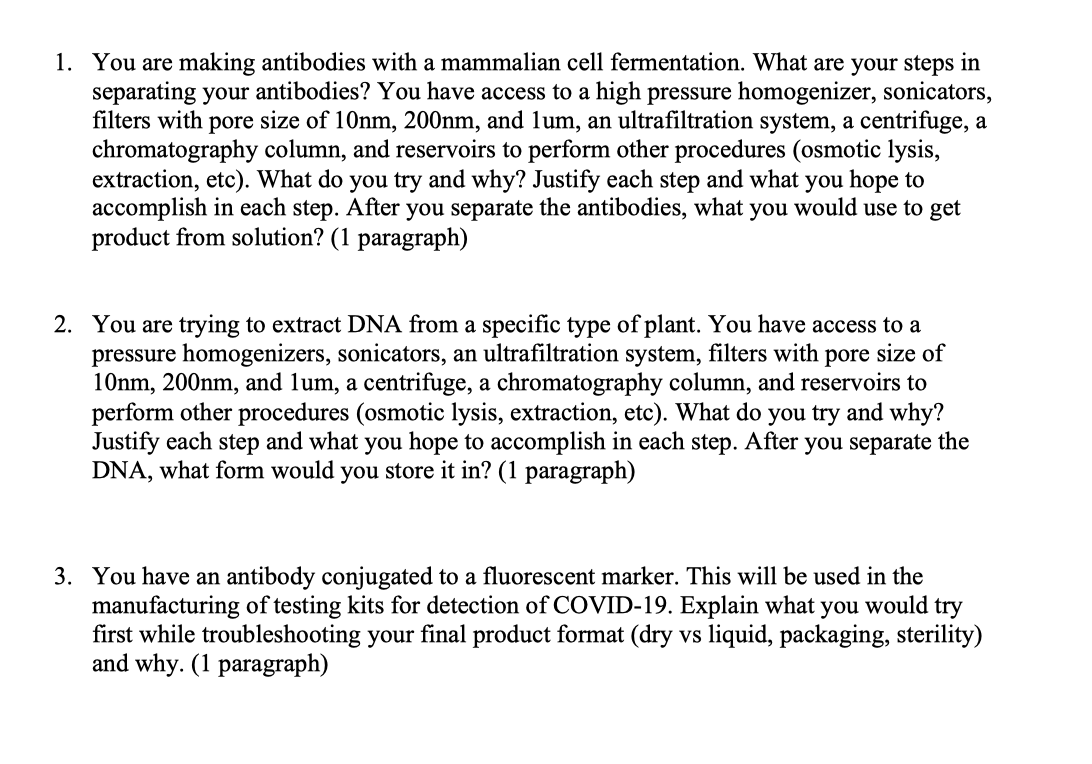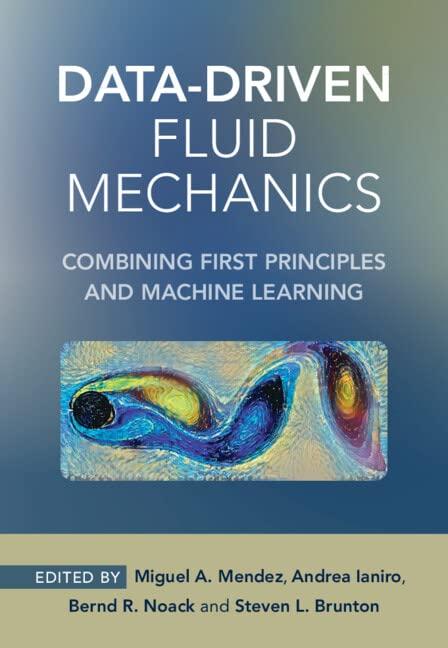

BIOREACTOR Extracellular Products Intracellular Products CELL HARVESTING * Centrifugation Microfiltration Ultrafiltration BIOMASS REMOVAL * Vacuum Filtration * Centrifugation * Microfiltration * Ultrafiltration * Press Filtration * Candle Filtration * Flotation Primary Recovery Stages CELL DISRUPTION * Homogenization * Bead Milling * Osmotic Shock + CELL DEBRIS REMOVAL * Centrifugation + Microfiltration Vacuum Filtration * Press Filtration PRODUCT EXTRACTION BY Aqueous Two-Phases * Organic Solvents Expanded Bed Adsorption * Batch Adsorption Supercritical Fluids * Reverse Micelles * Extractive Distillation IB's RENATURATION Dissolution * Refolding CONCENTRATION * Ultrafiltration * Evaporation * Reverse Osmosis * Precipitation * Crystallization * Extraction * Adsorption Distillation Intermediate Recovery Stages Low Purity Required High Purity Required FINAL PURIFICATION * Chromatography (Affinity, Reversed Phase, Ion Exchange, Size Exclusion, etc.) * Diafiltration * Electrodialysis * Crystallization * Fractional Precipitation For Solid Final Form DEHYDRATION OR SOLVENT REMOVAL * Spray Drying * Freeze Drying * Tray Drying * Fluid Bed Drying Drum Drying Final Purification Stages FIGURE 12.2 Generalized block diagram of downstream processing (5). 1. You are making antibodies with a mammalian cell fermentation. What are your steps in separating your antibodies? You have access to a high pressure homogenizer, sonicators, filters with pore size of 10nm, 200nm, and lum, an ultrafiltration system, a centrifuge, a chromatography column, and reservoirs to perform other procedures (osmotic lysis, extraction, etc). What do you try and why? Justify each step and what you hope to accomplish in each step. After you separate the antibodies, what you would use to get product from solution? (1 paragraph) 2. You are trying to extract DNA from a specific type of plant. You have access to a pressure homogenizers, sonicators, an ultrafiltration system, filters with pore size of 10nm, 200nm, and lum, a centrifuge, a chromatography column, and reservoirs to perform other procedures (osmotic lysis, extraction, etc). What do you try and why? Justify each step and what you hope to accomplish in each step. After you separate the DNA, what form would you store it in? (1 paragraph) 3. You have an antibody conjugated to a fluorescent marker. This will be used in the manufacturing of testing kits for detection of COVID-19. Explain what you would try first while troubleshooting your final product format (dry vs liquid, packaging, sterility) and why. (1 paragraph) BIOREACTOR Extracellular Products Intracellular Products CELL HARVESTING * Centrifugation Microfiltration Ultrafiltration BIOMASS REMOVAL * Vacuum Filtration * Centrifugation * Microfiltration * Ultrafiltration * Press Filtration * Candle Filtration * Flotation Primary Recovery Stages CELL DISRUPTION * Homogenization * Bead Milling * Osmotic Shock + CELL DEBRIS REMOVAL * Centrifugation + Microfiltration Vacuum Filtration * Press Filtration PRODUCT EXTRACTION BY Aqueous Two-Phases * Organic Solvents Expanded Bed Adsorption * Batch Adsorption Supercritical Fluids * Reverse Micelles * Extractive Distillation IB's RENATURATION Dissolution * Refolding CONCENTRATION * Ultrafiltration * Evaporation * Reverse Osmosis * Precipitation * Crystallization * Extraction * Adsorption Distillation Intermediate Recovery Stages Low Purity Required High Purity Required FINAL PURIFICATION * Chromatography (Affinity, Reversed Phase, Ion Exchange, Size Exclusion, etc.) * Diafiltration * Electrodialysis * Crystallization * Fractional Precipitation For Solid Final Form DEHYDRATION OR SOLVENT REMOVAL * Spray Drying * Freeze Drying * Tray Drying * Fluid Bed Drying Drum Drying Final Purification Stages FIGURE 12.2 Generalized block diagram of downstream processing (5). 1. You are making antibodies with a mammalian cell fermentation. What are your steps in separating your antibodies? You have access to a high pressure homogenizer, sonicators, filters with pore size of 10nm, 200nm, and lum, an ultrafiltration system, a centrifuge, a chromatography column, and reservoirs to perform other procedures (osmotic lysis, extraction, etc). What do you try and why? Justify each step and what you hope to accomplish in each step. After you separate the antibodies, what you would use to get product from solution? (1 paragraph) 2. You are trying to extract DNA from a specific type of plant. You have access to a pressure homogenizers, sonicators, an ultrafiltration system, filters with pore size of 10nm, 200nm, and lum, a centrifuge, a chromatography column, and reservoirs to perform other procedures (osmotic lysis, extraction, etc). What do you try and why? Justify each step and what you hope to accomplish in each step. After you separate the DNA, what form would you store it in? (1 paragraph) 3. You have an antibody conjugated to a fluorescent marker. This will be used in the manufacturing of testing kits for detection of COVID-19. Explain what you would try first while troubleshooting your final product format (dry vs liquid, packaging, sterility) and why. (1 paragraph)








